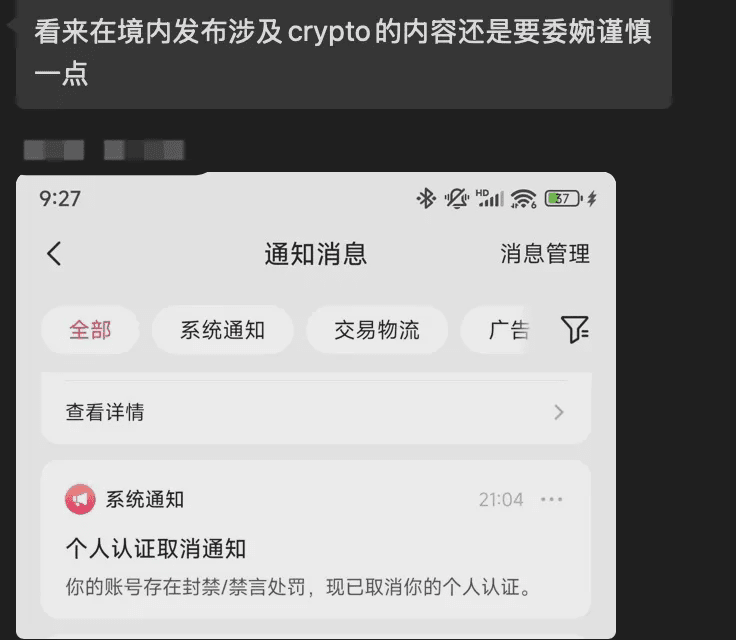Recently, the U.S. (GENIUS Act) has passed.
Hong Kong (Stablecoin Regulation Draft) passed the third reading.
Following that, major institutions interpreted the future impact of stablecoin issuance on the Web3 world, and the volume of discussion on this topic was enormous.
At one point, this year's hot RWA concept was suppressed.
However, many friends have reported to Lawyer Mankun that some media, social platforms, and communities have indeed reappeared with illegal fundraising behaviors and dissemination activities disguised under the banner of 'financial innovation' for the purpose of attracting funds, trading speculation for profit, using concepts such as 'stablecoins', 'RWA coins', 'JD coins', and other variants. The main forms include but are not limited to online and offline activities such as training, project promotion, and financing transactions.
As a law firm with the mission of 'ensuring the legitimate occurrence of Web3.0 in China', Mankun Law Firm finds it necessary to stand up at this time to provide relevant reminders for domestic Web3 practitioners and newcomers!
Maintaining accounts is not easy; KOL practitioners should pay attention to new developments in platform regulation.
Firstly, Lawyer Mankun found in some Web3 communication communities that many KOLs have reflected that their related themes on mainland short video platforms seem to be starting to receive less traffic.

In particular, videos comparing virtual currencies and stablecoin themes with traditional financial activities may even receive rectification notices:

Currently, the authorities are either reducing push notifications through video platforms to lower the discussion heat, or if the related concepts are overly hyped, it cannot be ruled out that the authorities will follow the old path of issuing risk warnings, reminding all relevant institutions and individuals to jointly resist and prevent illegal fundraising activities and dissemination conducted under the guise of 'blockchain', 'stablecoins', and other variants. It is believed that this is not the scene that domestic Web3 practitioners want to see...

Lawyer Mankun reminds us that for a long time, the authorities have been optimistic about blockchain technology and applications, but they strictly prevent and combat activities that are not genuinely based on blockchain technology but take the opportunity to hype the blockchain concept, seriously disrupting normal financial and economic order. In promoting Web3 domestically, it is strongly advised not to endorse specific project parties, especially when the stablecoin concept is being overly hyped. If community operators or KOLs promote the project, once the project party runs into trouble, they may become accomplices to criminal activities.
Entering Web3, be careful not to become a new target of stablecoin concept schemes.
Lawyer Mankun observed that in domestic crimes related to virtual currencies, crimes involving stablecoins (USDT) already account for the vast majority.
According to 'Chain Analysis' (2025 Cryptocurrency Crime Report), last year stablecoins accounted for 63% of all cryptocurrency transactions related to criminal activities, which also confirms the observations and feelings of Lawyer Mankun on the criminal front.

It is foreseeable that concepts such as Hong Kong stablecoins and JD stablecoins will become hot topics for criminals to carry out illegal activities targeting residents who lack Web3 knowledge.
Here, I would like to remind all friends who are considering entering the Web3 circle due to the passage of the stablecoin bill: As early as last year, the Hong Kong Monetary Authority clearly stated that stablecoin issuers and sandbox participants would not raise funds.

To echo the publicity tone of the mainland police—every project involving stablecoin investments is a scam. Although this statement is extreme, I hope newcomers to Web3 can keep it in mind: in the cryptocurrency world, observe more, learn more, and take fewer actions.
Lawyer Mankun teaches you to recognize the four characteristics of stablecoin fund schemes.
1. Illegality:
Fund schemes often operate without the legal approval of financial regulatory authorities, using various means to bypass regulations and attract investors. For example, as mentioned earlier, the Hong Kong Monetary Authority has clearly stated that stablecoin issuers will not conduct public fundraising; thus, when seeing projects disguised as 'Hong Kong stablecoins', it might be wise to call the Hong Kong Monetary Authority to inquire if policies have changed regarding stablecoin issuers raising public funds or providing investment products.
2. Publicity:
Fund schemes usually promote their so-called 'investment opportunities' widely through media, promotional meetings, WeChat groups, video accounts, etc. Just remember one thing: 'Publicity does not equal legality.' Never think, 'This project dares to promote publicly; it must be real.' Publicity is just a necessary path for fund schemes to acquire customers.
3. Inducement:
Investment schemes use high returns as bait, promising high returns such as 'doubling in six months' or 'this has the potential to be a thousandfold coin in the long term.' These returns are often far higher than the return rates of normal investment channels, attracting participants by exploiting investors' greed. A common pitch for these schemes is: 'This stablecoin is about to launch in Hong Kong; if you subscribe early, the returns will surely be thousands or even tens of thousands of times.' Friends, think about it from another perspective—this thing is called a stablecoin; how can you still believe its returns will multiply by thousands or tens of thousands?
4. Sociality:
Stable fund schemes raise funds from unspecified targets, meaning they are open to the public. They do not conduct strict audits of investors' qualifications, and anyone can participate. Generally speaking, all regulated and compliant projects will typically provide risk warnings (such as for securities accounts) and conduct investment capability assessments (such as for domestic securities accounts buying Hong Kong stocks and U.S. stocks), whereas the fund schemes using the stablecoin concept do not set any so-called thresholds.
Retail investors entering Web3 can briefly evaluate whether a project is a fund scheme from the above four dimensions.
Once any project meets the above conditions, it undoubtedly constitutes illegal fundraising activities in mainland China and is highly likely to face criminal prosecution.
/ END.
Author of this article: Lawyer Deng Xiaoyu